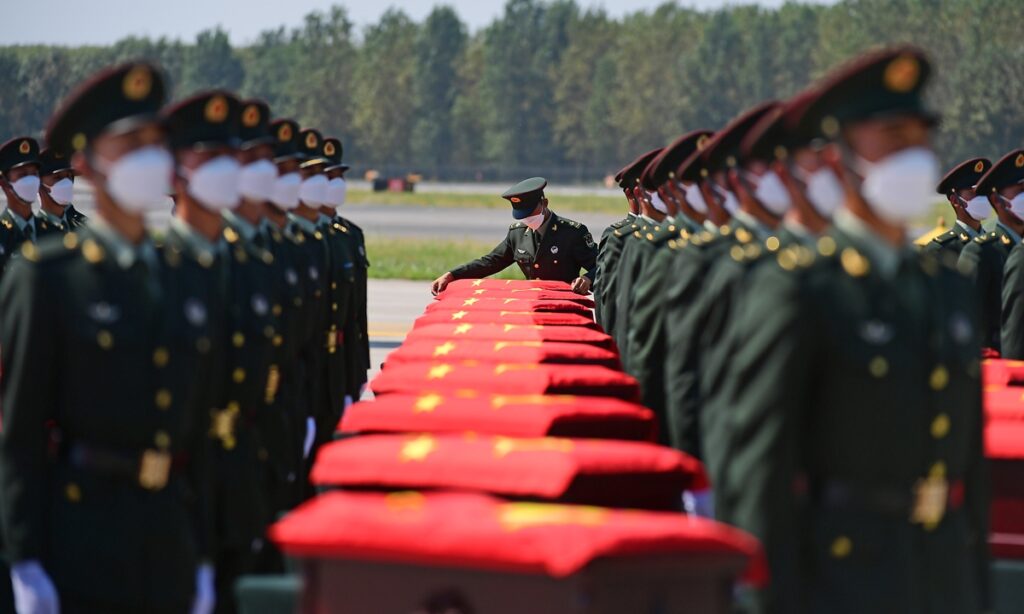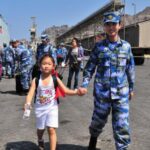They left as young men and returned as deceased heroes – after seven decades, 109 soldiers who were killed in the War to Resist US Aggression and Aid Korea (1950-53) returned to China on Thursday.
Remains of the 109 Chinese soldiers were returned by South Korea and arrived in Shenyang, the capital of the Northeast China’s Liaoning Province, on Thursday.
The charted Yun-20 transport aircraft owned by the Chinese Air Force landed at Shenyang Taoxian International Airport from Seoul at around 11:30 am.
“Thank you for bringing the heroes back to the motherland. Their heroic spirit remains and the country is in peace. Pay tribute to the Chinese People’s Volunteers!” the control tower at the airport announced over the radio.
In a somber and respectful mood, a ceremony was held at the airport to welcome the remains of the Chinese People’s Volunteers soldiers.
Honor guard soldiers carefully wiped down each casket of the remains, and put Chinese national flags on each of them.
The Chinese national anthem was played, before attendants bowed thrice to the heroes.
The remains of the soldiers were then transferred to the Cemetery for Martyrs of the Chinese People’s Volunteers in northern Shenyang via military lorries. More than seven decades ago, the volunteer soldiers also took such lorries to cross the bridge across the Yalu River and devoted themselves to the battle.
On the way, some locals stood along the street to pay tribute to the heroes.
A burial ceremony will be held at the cemetery on Friday morning.
The Thursday ceremony was broadcasted live, with many Chinese netizens showing their respect to the heroes.
Some people shared their own stories. “My grandma’s last wish was to find her brother, who was a Chinese People’s Volunteers soldier and never came back. I hope he could be found this time and finally fulfilled my grandma’s wish.”
This marked the eighth repatriation effort between China and South Korea. In the seven previous repatriations, South Korea had returned the remains of 716 Chinese People’s Volunteers martyrs killed in the Korean War, including 437 in 2014, 68 in 2015, 36 in 2016, 28 in 2017, 20 in 2018, 10 in 2019, and 117 in 2020, according to the Xinhua News Agency.
According to Fengmian News, DNA data from the Chinese People’s Volunteers remains returned to China have been collected in the past to build a database. Documents related to the remains have been translated and filed.
Among the remains from the seventh repatriation, four have since been identified and matched with their living relatives, who were invited to the burial ceremony.
Before the chartered plane took off on Thursday, a ceremony was also held at the Incheon International Airport.
At the ceremony, Vice Minister of Veteran Affairs Chang Zhengguo said that China and South Korea have jointly carried out the handover of the remains of the Chinese People’s Volunteers martyrs in South Korea for eight consecutive years and had returned a total of 825 remains to their motherland, following humanitarian principles and in the spirit of friendship and practical cooperation.
The Chinese People’s Volunteers fought with the Democratic People’s Republic of Korea’s army in the Korean War against the army of the Republic of Korea and US-led UN forces between 1950 and 1953. Some 197,653 Chinese People’s Volunteers soldiers are confirmed to have died during the war, most of whom were buried on the Korean Peninsula.
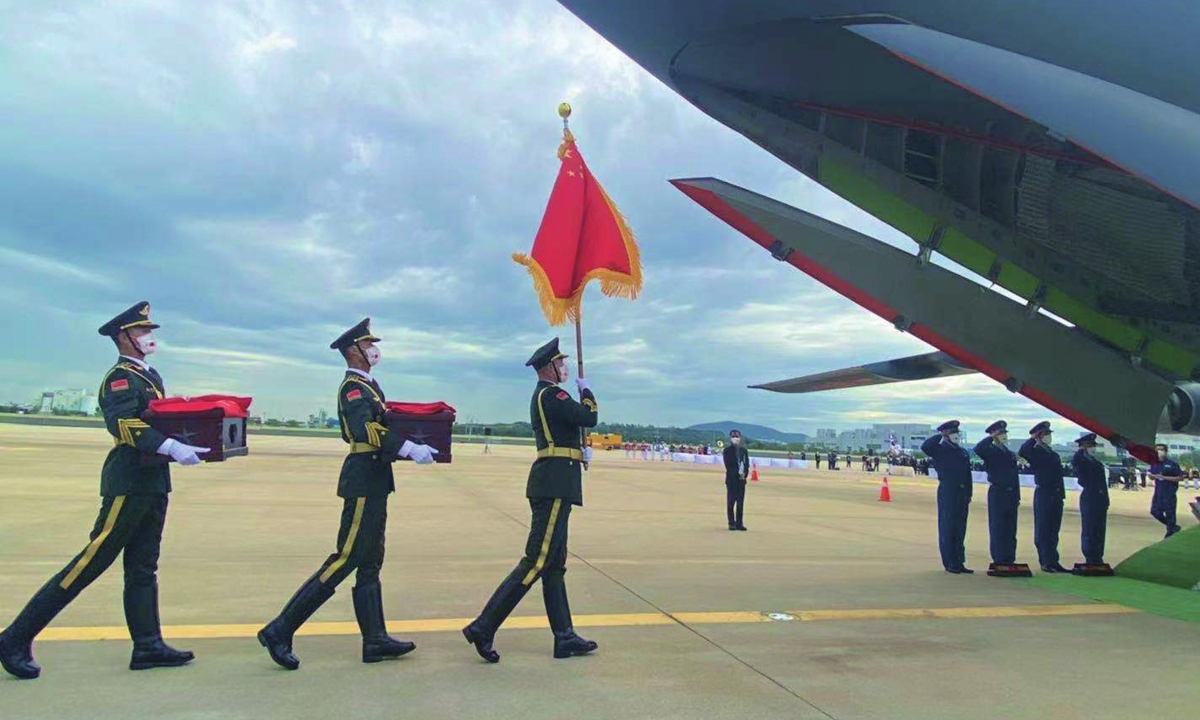
Chinese honor guard soldiers carry the remains of the Chinese People’s Volunteers soldiers onto the chartered Chinese Air Force flight on Thursday at the Incheon International Airport. Photo: cnsphoto
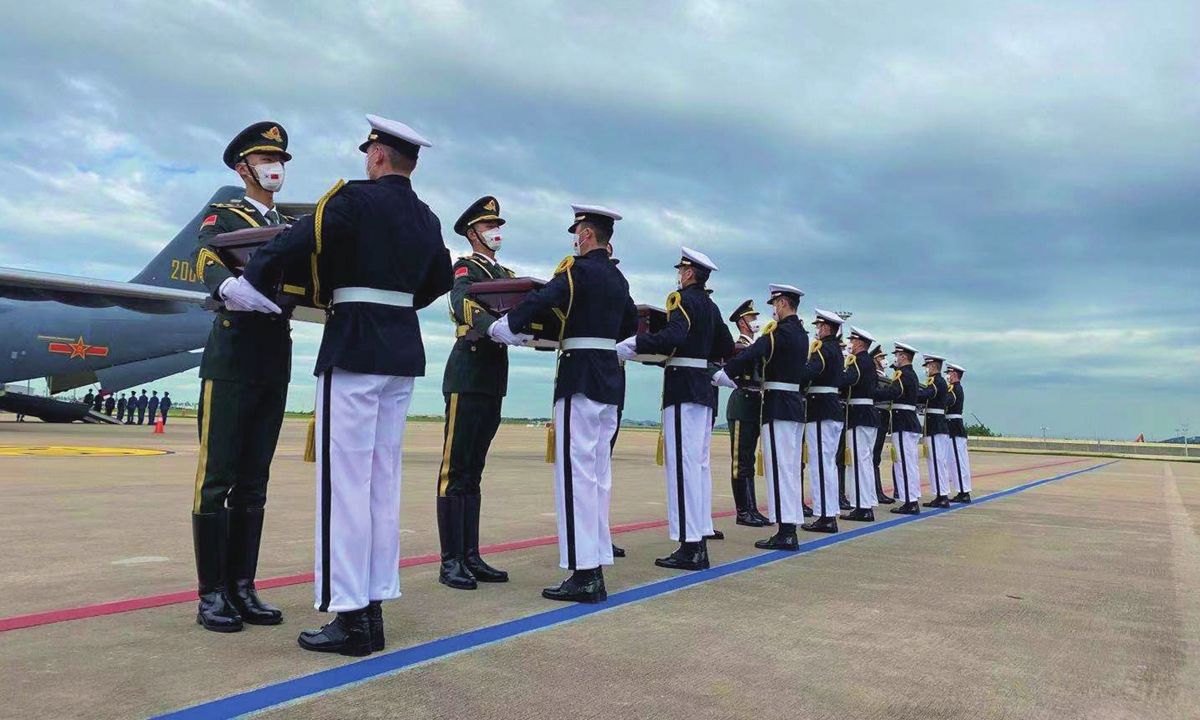
South Korean soldiers hand over the caskets containing the remains of the Chinese People’s Volunteers soldiers at the Incheon Airport on Thursday. Photo: cnsphoto
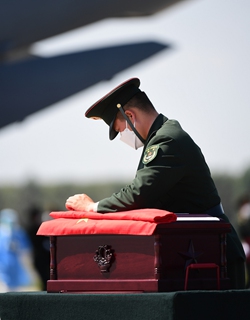
An honor guard soldier carefully checks the casket containing the remains of a Chinese People’s Volunteers soldier. Photo: Xinhua
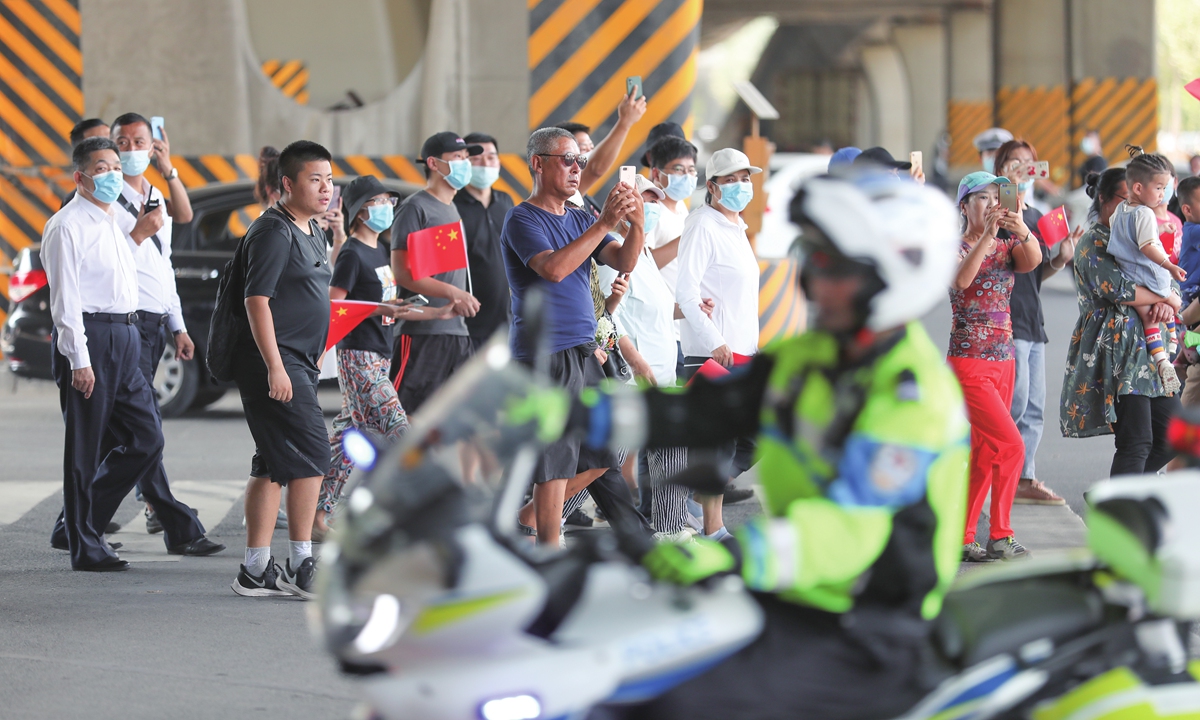
Shenyang residents stand along the street to pay respect to the fallen heroes. Photo: IC
The remains of 109 Chinese People’s Volunteers soldiers arrive at the Shenyang Taoxian International Airport in Northeast China’s Liaoning on Thursday. Photo: cnsphoto

